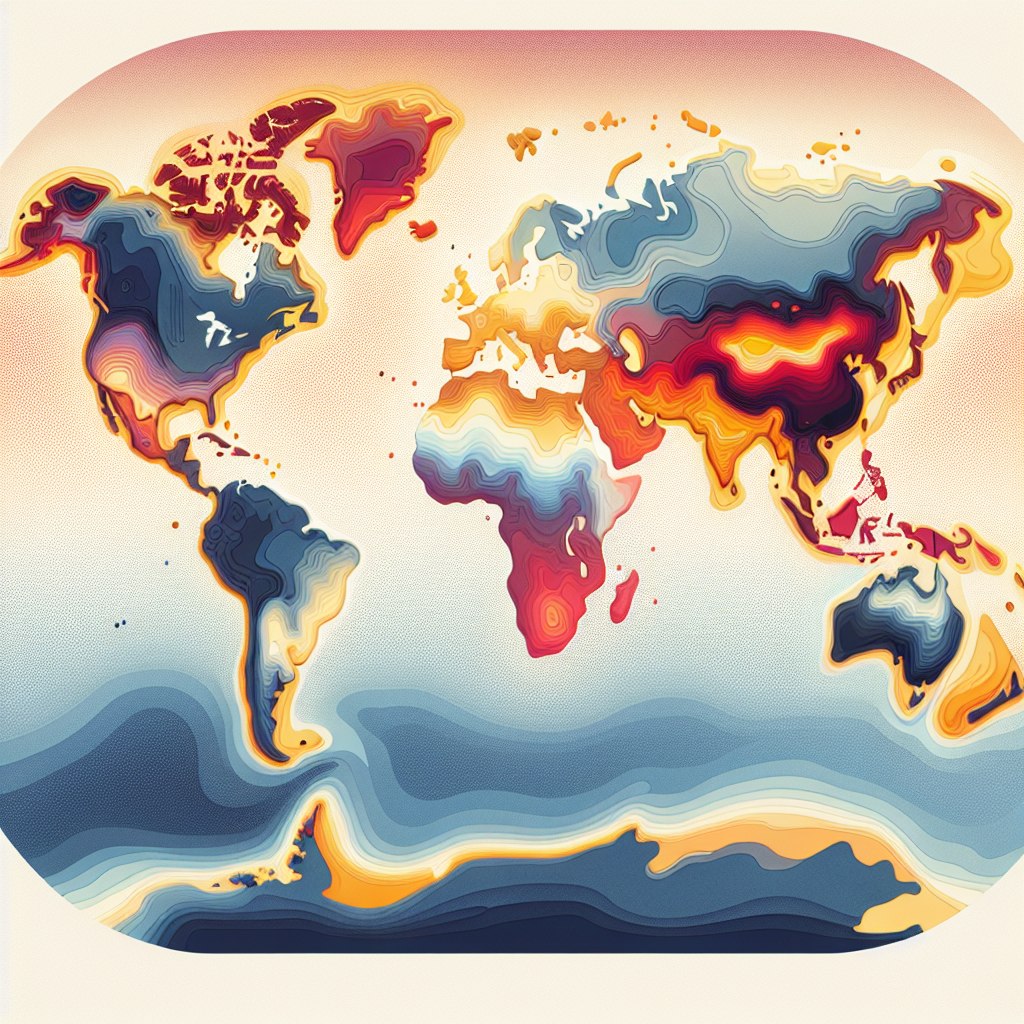The Unipolar Moment and Its Impact on Global Power Dynamics
Introduction
In the reflections on global power dynamics, the unipolar moment of the late 20th and early 21st centuries stands out as an intriguing phase. As the Anglo-American sphere held unprecedented sway, decisions made during this period substantially influenced the unfolding of a multipolar world order. This analysis explores these crucial decisions, particularly the inclusion of China into the global trading framework, and evaluates their implications on today's intricate geopolitical landscape.
The Unipolar Moment: An Epoch of Hegemonic Influence
The unipolar moment refers to the period following the Cold War when the United States, and to a broader extent, the Western alliance, emerged as the predominant global power. This era was characterized by a significant imbalance, with the West wielding far more influence than any other region. The 1990s and early 2000s saw the pinnacle of Western hegemony, marked by the rapid spread of democratic values and market-oriented economic reforms.
Strategic Decisions in a Transforming World
One of the most consequential decisions during this time was the integration of China into the world’s trading framework. Former U.K. Prime Minister Tony Blair and President Bill Clinton were pivotal in facilitating China's entry into the World Trade Organization (WTO). This strategic move was based on the recognition of the inevitable rise of Eastern powerhouses and the desire to integrate China into the global economy to foster cooperation.
In the words of Tony Blair, the West attempted to acknowledge and adapt to a new world order where the East would gain significant power. The G7 (which briefly became the G8 with Russia’s inclusion) regularly invited China to discussions, indicating an early awareness of the shifting dynamics. The expectation was to create a framework where emerging powers like China could grow within a cooperative and rule-based international system.
The Rise of China and Russia: Diverging Paths
However, the past few years have demonstrated that the integration of China and Russia into the global system did not lead to the anticipated harmonious world. Instead, both countries have adopted stances and systems fundamentally at odds with Western democratic values and institutions.
China, for instance, has grown into an economic juggernaut with a distinctly authoritarian regime. Its global Belt and Road Initiative and significant military advancements underscore its ambition to reshape international norms and exert influence. Similarly, Russia's aggressive foreign policy, particularly its actions in Ukraine and Syria, reflects its desire to challenge Western dominance and expand its sphere of influence.
The Emergence of a Multipolar World
Today, we inhabit a multipolar world where power is distributed among several key players. This shift is arguably beneficial, fostering a balance that can prevent any single entity from monopolizing global affairs. Nevertheless, it also introduces complexities and challenges that necessitate careful navigation.
Blair emphasizes the importance of recognizing China’s legitimate place as a global power. Encapsulation and containment strategies are deemed counterproductive. Instead, the focus should be on maintaining military and technological superiority while leaving room for cooperation and engagement. This approach underscores a pragmatic recognition of the differences between Western democratic systems and the Chinese model, advocating for a balanced strategy that combines strength with diplomacy.
Lessons Learned and Future Directions
Reflecting on the unipolar moment, it becomes evident that the West’s strategy had its merits and limitations. There’s a tendency to view global events through a Western-centric lens, assuming that different outcomes might have been achieved with different actions. However, the reality is that global dynamics are influenced by a multitude of factors, many of which are beyond the control of any single region or policy.
Moving forward, it’s crucial for Western democracies to continue fostering cooperation while simultaneously safeguarding their own values and interests. This involves not only maintaining strong military and technological capabilities but also engaging in persistent dialogue and diplomatic efforts to address global challenges.
For more on the complex history of China’s rise and the global response, readers may explore resources like The Council on Foreign Relations or The Brookings Institution.
Conclusion
The transition from a unipolar to a multipolar world has been a complex and multifaceted journey. Decisive actions taken during the unipolar moment, such as integrating China into the global economy, have had far-reaching consequences. While these actions have fostered economic interdependence, they have also revealed stark differences in governance and values.
In navigating this multipolar world, it is crucial to strike a balance between competition and cooperation. Recognizing the legitimate aspirations of emerging powers, maintaining strategic superiority, and fostering dialogue are essential steps towards a stable and prosperous international order. The lessons of the past two decades underscore the importance of adaptability, pragmatism, and a nuanced understanding of global dynamics.
This detailed analysis captures the essence of the unipolar moment and its influence on current global power dynamics. For a deeper dive into the historical and strategic contexts, credible resources like those from the Council on Foreign Relations and Brookings Institution offer valuable insights.
Related News
- The Pivotal Mistake of China's Taiwan Ambition and Its Economic Odyssey
- The Strategic Playbook of the Chinese Government: Beyond Western Expectations
- Peering Into the Abyss: The Shadow of Global Conflict in the Modern Era
- Navigating the Rough Seas of Global Politics: The Maritime Order Strategy
- Analyzing the Complexity of World War II Alliances and Anti-Communism
